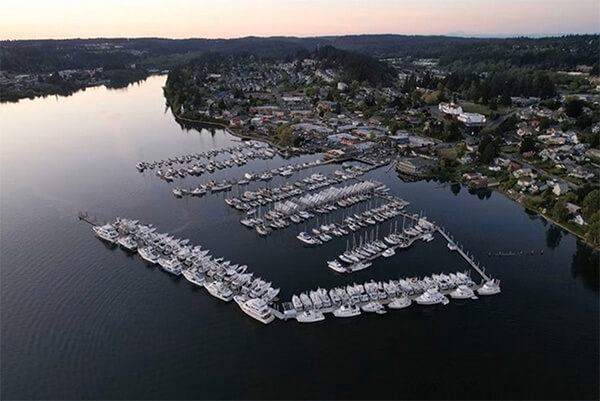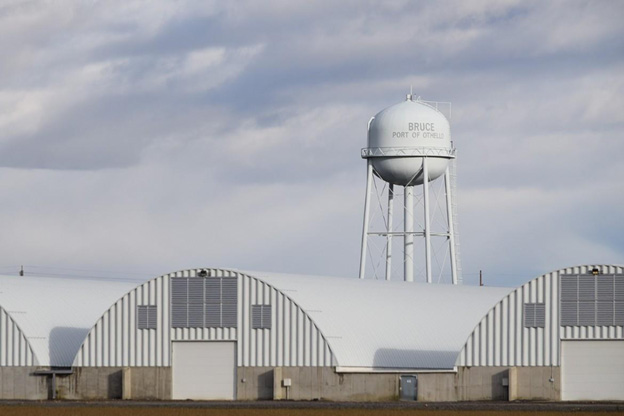By: Frank Chmelik and Tim Schermetzler of CSD Attorneys at Law, P.S. – WPPA Counsel
Back in July 2020, in the early months of the COVID-19 pandemic, Knowing the Waters addressed the impacts of Governor Inslee’s emergency proclamations concerning residential tenancies on port districts with liveaboard moorage customers, recreational vehicle (“RV”) parks, and other similar facilities. To look back at the 2020 column, click here. At that time, many ports were prevented from taking steps to remove persons violating port rules and regulations from moorage slips and RV parks. This month’s column discusses the lasting impacts of these emergency orders, the current state of the law, and a look to the future for ports with liveaboard moorages and RV parks.
A lot has happened since 2020; the Governor’s emergency proclamations have expired, the legislature passed new laws concerning residential tenancies and the broader housing shortage in Washington, and cities have taken a more active role in passing local ordinances that provide protections to tenants above and beyond state law. Courts are now being asked to apply these new laws in a post-pandemic landscape, which creates a level of uncertainty. What remains largely the same, however, is that many ports still have questions on liveaboard moorages and campground facilities, and all too often, ports must respond when people begin living on port property without permission. The following sections discuss the current status of the law and some suggested best practices.
Ports and the Residential Landlord-Tenant Act, Chapter 59.18 RCW (RLTA). Most ports that offer liveaboard moorage or RV park facilities do not intend to provide these facilities as homes, or more specifically, “dwelling units” under the Residential Landlord-Tenant Act (“RLTA”). Instead, ports provide license agreements, generally terminable without cause, on thirty (30) days or less notice to these customers. These licenses are not rental agreements and are not meant to create residential tenancies. RLTA applies only to “residential tenancies.” The statute identifies certain living arrangements that are not residential tenancies, including hotels[1] and rental agreements on public lands governed by Title 79.[2] The concern for ports, however, is that this statutory exemption does not expressly exclude port-operated RV parks or liveaboard moorages. A statutory exemption for RV parks or liveaboard moorages may not be needed if these types of living arrangements are not considered residential tenancies under RLTA. Recent Washington Court of Appeals decisions suggest that RLTA only applies where an actual structure is provided by the landlord as “a dwelling unit”.[3] Following these decisions, RLTA would likely not apply to most ports that only license the use of a moorage slip or the RV parking space for customers. However, a “best practice” may be to include language in licenses for the use of moorage slips or RV parking spaces that these are not intended to be “residential tenancies.”
Ports and the Manufactured/Mobile Home Landlord-Tenant Act Chapter 59.20 RCW (MHLTA). Similar to RLTA, the Manufactured/Mobile Home Landlord-Tenant Act (“MHLTA”) provides protection to tenants of mobile or manufactured home parks. MHLTA differs from RLTA in one significant way that could impact ports: MHLTA clearly envisions protecting tenants who place a personally owned mobile/manufactured home or park model[4] on a lot within a mobile home park.[5] Persons camping or staying temporarily in RV parks (where a parking space is licensed or rented for seasonal recreation purposes only and not intended for year-round occupancy) are not protected by MHLTA. However, if the operator of the RV park permits customers to use a parking space as their primary residence and fix or attach the RV to that space, then those customers may still be protected under MHLTA according to a 2018 Court of Appeals decision.[6] In the case of port-operated RV parks, there is a real danger that a port may be subjected to the requirements of MHLTA if the port were to allow RV spaces to be rented for year-round occupancy – rather than for seasonal recreational purposes. In one instance, a port leased an RV park to an operator that permitted long-term renting of spaces. When the lease was assigned to a new operator, that operator attempted to terminate the RV rentals so the new operator could complete much-needed repairs and improvements. The RV owners objected, claiming the RV park had through action (or inaction) turned into a mobile home park. Litigation ensued.
Looking to the future for ports with liveaboard moorages and RV parks. Recognizing that the law in this area post-Covid has tilted in favor of the tenant, attentive management of moorage and RV park customers is perhaps the most important factor influencing the outcome for ports. Adopting proper controls in the port’s rules and regulations and ensuring timely enforcement of these rules can avoid a situation where a customer of the port claims they have protections under either RLTA or MHLTA. Listed below are some best practices to consider implementing at your port:
· Adopt clear rules and regulations for marinas and RV parks that indicate that except as approved by the port in writing, a boat owner or vehicle owner may not live in their vessel or vehicle. In the case of moorage, the idea is to allow the use of RCW 53.08.320 to seize and dispose of a vessel violating the rules.
· Consider explicitly stating that no residential tenancy is created or implied.
· Pay particular attention to agreements with liveaboards.
· Take steps to immediately address those boaters that are becoming liveaboards without explicit port permission.
· Where appropriate, provide daily rate licenses, with a limit on the number of consecutive days moorage slips or RV spaces may be used by customers.
· Take steps to immediately address and require removal of any permanent or semi-permanent RV installations, such as decks, rock walls, or planting vegetation, in RV spaces.
· Take steps to immediately address derelict or abandoned vessels/vehicles.
· Partner with local law enforcement using RCW 53.08.220, where appropriate, to respond to persons violating port rules and regulations, including violators who refuse to vacate port property.
· When presented with close calls, consider that courts will likely strictly construe tenant protection laws in favor of protecting tenants, meaning close calls often favor tenants. In this regard, ports should exercise caution on close calls and work closely with their legal counsel when these issues arise.
As always, please contact your port counsel with any questions regarding this topic. And, if you have a particular question for a Knowing the Waters, please email us at: fchmelik@csdlaw.com or tschermetzler@csdlaw.com
[1] However, since the pandemic, lawyers representing indigent defendants have been arguing that those living in hotels and motels are subject to Ch. 59.18.
[2] RCW 59.18.040.
[3] Landes v. Cuzdey, 56419-0-II, 2023 WL 3478081 (Div. 2 2023), citing Parsons v. Mierz, 3 Wn. App. 2d 1015 (Div. 2 2018).
[4] A “park model”, is defined in MHLTA as a RV that is intended for permanent or semi-permanent installation and used as a primary residence. RCW 59.20.030(20).
[5] A “mobile home park” is any real property which is rented or held out for rent to others for the placement of two (2) or more mobile homes, manufactured homes, or park models for the primary purpose of production of income, except where such real property is rented or held out for rent for seasonal recreational purpose only and is not intended for year-round occupancy. RCW 59.20.030(15).
[6] Allen v. Dan & Bill’s RV Park, 6 Wn. App. 2d 349, 428 P.3d 376 (Div. 2 2018).





